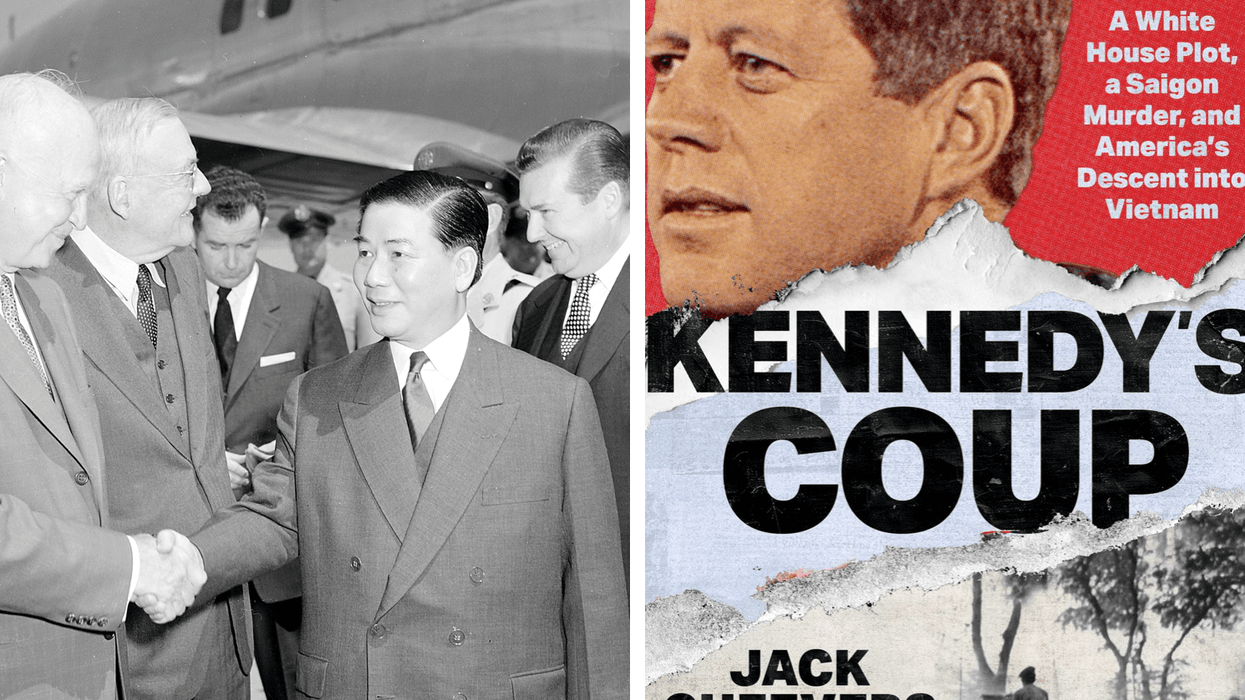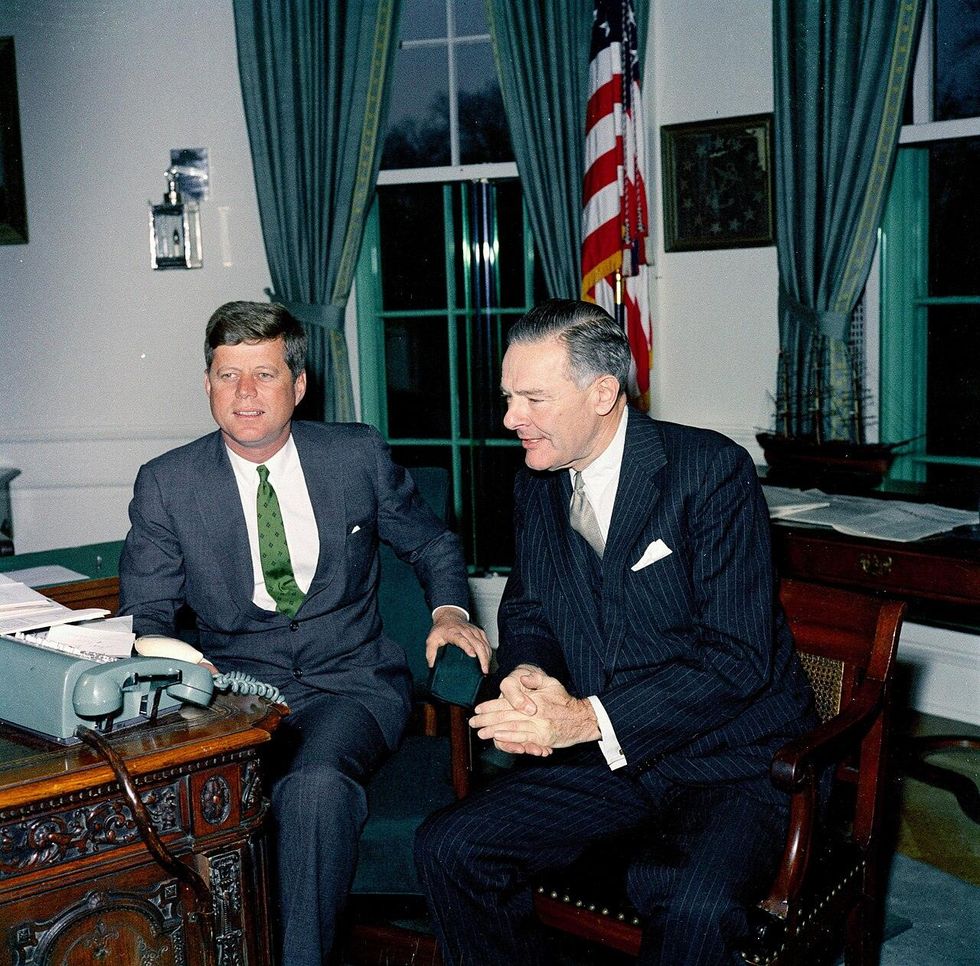As the House Judiciary Committee was voting on articles of impeachment in 1974 and Richard Nixon was stumbling through the final days of his presidency, those in his administration in a position to observe the president’s mood and behavior were concerned that he might do erratic and dangerous things before leaving office. Dangerous things involving military force were understandably the chief concern. Secretary of Defense James Schlesinger quietly put the word out to the military that no orders involving military operations and coming from the White House were to be followed without first checking with Schlesinger or Secretary of State Henry Kissinger.
Donald Trump, in the final days of his presidency, presents at least as much reason for worry. The principal specific concern is not the kind of circumvention of senior levels of the chain of command that Schlesinger’s directive was designed to counter. And with the teetotaling Trump, alcohol is not a factor as it reportedly was with Nixon. But the psychopathology is.
Although the American Psychiatric Association’s “Goldwater rule” is supposed to preclude its members from assessing leaders from a distance, some well-qualified assessors have not been deterred from offering their expert and alarming judgments about Trump. In any event, one does not need to be a psychiatrist to observe the extremely self-centered behavior in which Trump’s personal needs and demons repeatedly have taken precedence over the needs of the nation he is supposed to be leading.
That pattern has been much in evidence through Trump’s presidency, beginning with the laughable but largely harmless claims on his first day in office about the size of the crowd at his inauguration. Now the harmlessness is gone. The consequences of the pathology have become greater than ever since Trump has been dealt the biggest blow an extreme narcissist could receive: clear defeat in a national election. The New York Times aptly observes that Trump is now “focused on the one area in which he is powerless to get what he wants: a way to avoid leaving office as a loser.” Even members of Trump’s own party anonymously characterize his behavior since the election as “unhinged.”
The principal manifestation of that behavior has been Trump’s fixation on trying to overturn the result of the election or, failing that, to convince his followers that his election defeat was unfair. Beyond Trump’s incessant tweeting on that theme and pressuring state and local officials to overturn the election, he has been withdrawn and invisible during much of the seven weeks since the election. He has given little indication of doing the nation’s business despite a raging pandemic and associated economic problems.
But it’s not all withdrawal. Trump has been lashing out, including against some officials, such as his attorney general and the governor of Georgia, who had been among his most sycophantic supporters but who stopped short of going to Trump’s extreme of persistently trying to overturn the outcome of a free election. His sudden rejection of a laboriously negotiated and much-needed economic relief package is probably part of his way of lashing out at Republican members of Congress who also have not gone to that extreme. His pardons of convicted crooks and war criminals is another form of lashing out, in this case against the whole rule of law. And he is not ceasing to lay landmines to make it as difficult as possible for the next president to govern.
The objective of sabotaging the next administration points to one of the most likely and dangerous things that the unhinged lame duck president might do in his final days in office, which is to initiate a military clash with Iran. Such a possibility has been building throughout the four years of Trump’s highly confrontational and—as far as U.S. interests are concerned—counterproductive policy toward Iran. The most recent signs have become even more worrisome. Trump issued—by tweet, of course—a highly threatening message following a volley of rockets fired at Baghdad’s Green Zone, where the U.S. embassy is located, an attack that Trump blamed on Iran. The administration also has been brandishing military power against Iran with the dispatch of U.S.-based B-52 bombers to the region. Trump’s partner in provoking Iran—that is, the Netanyahu government of Israel—has added to the saber-rattling by sending a submarine to the area.
The role of Iraqi militias, which probably fired the rockets in Baghdad, points to how the Trump administration could be given an excuse to attack Iran even if Iran itself continues to restrain itself while counting the days until Trump leaves office. A widespread undercurrent of Iraqi resentment against the U.S. presence has continued ever since the destruction and misery that followed the U.S. invasion of the country in 2003. That resentment was reflected in the agreement for a pullout of U.S. troops that was negotiated during George W. Bush’s administration.
The Iraqi militias may act on this general resentment as well as on more specific reasons they have been given to hate the United States. The drone attack early this year in which the United States assassinated the senior Iranian military and political figure Qasem Soleimani—a killing regarding which Iranians do not consider the books to be closed—also killed a senior Iraqi militia leader, Abu Mahdi al-Muhandis.
On top of that history comes Trump’s pardon in the past few days of four Blackwater security guards who had been convicted and imprisoned for the massacre of seventeen Iraqi civilians, including children, at a road intersection in Baghdad in 2007. This pardon sends a terrible message to all Iraqis. It says not only that the rule of law in the United States is a sham but also that the United States does not value or respect Iraqi lives. With this one act, Trump has increased the chance of future Iraqi shots being fired in anger at Americans—and the sort of incident that Trump could use as an excuse for starting a military conflagration with Iran.
The current checks that could stop a departing president from doing something like that are weak. There is no James Schlesinger or Henry Kissinger to block such an occurrence. The current secretary of state, Mike Pompeo, takes second place to no one in being both a hawk on Iran and a sycophant to Trump. The Defense Department currently is led by an acting secretary, Christopher Miller, who is one of the many temps whom Trump has installed to keep the executive branch on a short leash and to flout the confirmation role of the Senate.
Such people who are in place, especially Miller and Chairman of the Joint Chiefs of Staff General Mark Milley, will have a hard time standing up to even an unhinged president as long as he holds the title of commander-in-chief, as Trump will continue to have until January 20th. If a crunch comes between now and then, they will have to think long and hard about the larger interests at stake and about how their oaths of office pledged them to defend the Constitution of the United States, not any one occupant of the White House.





 President John F. Kennedy and Henry Cabot Lodge Jr. in 1961. (Robert Knudsen/White House Photo)
President John F. Kennedy and Henry Cabot Lodge Jr. in 1961. (Robert Knudsen/White House Photo)










